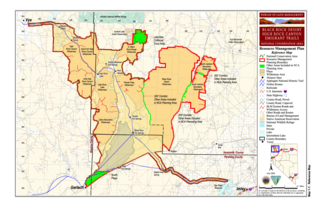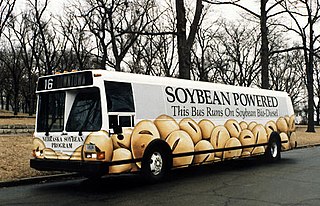It is proposed that this article be deleted because of the following concern:
If you can address this concern by improving, copyediting, sourcing, renaming, or merging the page, please edit this page and do so. You may remove this message if you improve the article or otherwise object to deletion for any reason. Although not required, you are encouraged to explain why you object to the deletion, either in your edit summary or on the talk page. If this template is removed, do not replace it . The article may be deleted if this message remains in place for seven days, i.e., after 14:30, 3 October 2019 (UTC). Nominator: Please consider notifying the author/project: {{subst:proposed deletion notify |Burn Clean Project|concern=Advert for unnotable entity}} ~~~~ |
This article has multiple issues. Please help improve it or discuss these issues on the talk page . (Learn how and when to remove these template messages) (Learn how and when to remove this template message)
|
The Burn Clean Project is a volunteer organization providing sustainable energy solutions for the Burning Man festival in Black Rock Desert. [1]

Burning Man is an event held annually in the western United States at Black Rock City, a temporary city erected in the Black Rock Desert of northwest Nevada, approximately 100 miles (160 km) north-northeast of Reno. The late summer event is an experiment in community and art, influenced by ten main principles: radical inclusion, radical self-reliance, radical self-expression, communal effort, civic responsibility, gifting, decommodification, participation, immediacy, and leave no trace. The event takes its name from its culmination, the symbolic ritual burning of a large wooden effigy that traditionally occurs on the Saturday evening of the event.

The Black Rock Desert is a semi-arid region (in the Great Basin shrub steppe eco-region), of lava beds and playa, or alkali flats, situated in the Black Rock Desert–High Rock Canyon Emigrant Trails National Conservation Area, a silt playa 100 miles (160 km) north of Reno, Nevada that encompasses more than 300,000 acres (120,000 ha) of land and contains more than 120 miles (200 km) of historic trails. It is in the northern Nevada section of the Great Basin with a lakebed that is a dry remnant of Pleistocene Lake Lahontan.
The mission of the Burn Clean Project is to organize and energize Black Rock City's evolution from petroleum dependency to the affordable application of renewable energy resources. The ultimate goal of the Burn Clean Project is to see Black Rock City 95% free of fossil fuels before the close of this decade, while spreading the technologies and philosophies of renewable energy use to communities across the US.

Renewable energy is energy that is collected from renewable resources, which are naturally replenished on a human timescale, such as sunlight, wind, rain, tides, waves, and geothermal heat. Renewable energy often provides energy in four important areas: electricity generation, air and water heating/cooling, transportation, and rural (off-grid) energy services.
In 2006, Burn Clean Project organized the biodiesel and biodiesel-friendly generators to power the Staff Commissary, the Greeter's Station, and the Man himself for the Burning Man festival with 99.9% biodiesel. (.1% blend of diesel fuel is required for federal tax incentives.) This B99 was processed from locally collected Waste Vegetable Oil (WVO), from Bently Biofuels in Minden, NV. This was accomplished by founding member, Jenn "1-LUV" Breckenridge and partner, Dr. Ryan Wartena of MIT, with the aid of Blue, Facility Manager at Burning Man headquarters and BCP Liaison, Carlo Luri, General Manager of Bently Biofuels, and Don Gray of Kohler Power Supply. Large theme camps such as Entheon Village, Disorient, and Hookahville also took advantage of the deals struck with Bently, Kohler, and Burning Man, and fueled their camps with B99.

Biodiesel refers to a vegetable oil- or animal fat-based diesel fuel consisting of long-chain alkyl esters. Biodiesel is typically made by chemically reacting lipids with an alcohol producing fatty acid esters.
What was accomplished by Burn Clean Project in 2006, created a paradigm shift in the fuel practices of Burning Man. In 2007, the BM organization, much encouraged by BM's DPW, fueled as many of their generators which was possible with B99, from the 50 kW generators on up to the massive 200 kW's. Cashman's and United Rentals, the two major generator providers of Nevada, have both considered changing their anti-biodiesel policies to accommodate Burning Man and to compete with Kohler Power Supply. Up until 2007, Kohler has been one of the very few national resources for authorized B100 use. Cashman's and United's adjustment at the corporate level, has been affected by citizens ready for positive change and willing to do something about it, supported by companies like Bently Biofuels and Kohler Power Supply, that believe renewable fuels are not something to be reserved for the distant future, but are realities ready to be utilized today.
At the close of the burn in 2006, Larry Harvey, founding member of the Burning Man community, announced that the theme for 2007 BM festival would be "The Green Man". The organization has taken on Tom Price as a full-time Environmental Manager of BM devoted to "greening the burn". Now Burning Man, already the largest Leave No Trace event in the US, has advanced to another level of environmental stewardship. The Earth Guardians, longtime protecters of Black Rock Desert and Alternative Energy Zone, longtime incubators of renewable energy technologies, have been joined by Burn Clean Project, Cooling Man, Evolutionary Center, Sustainaville, Greening the Burn, and a score of other eco organizations that are devoted to creating a way of harmoniously co-existing with the environment.
For Burning Man 2007, Burn Clean Project ran the BCP BioBus (space) Shuttle to Black Rock City from Reno International Airport. A biodiesel-fueled bus shuttled burners to and from Black Rock desert, helping eliminate the need for individuals to rent petroleum-fueled cars for an entire week to use for one four-hour round trip. The initiation of BCP's biobus pilot program is one more milestone in the long-term goal to eradicate the widespread use of fossil fuels in Black Rock City.




